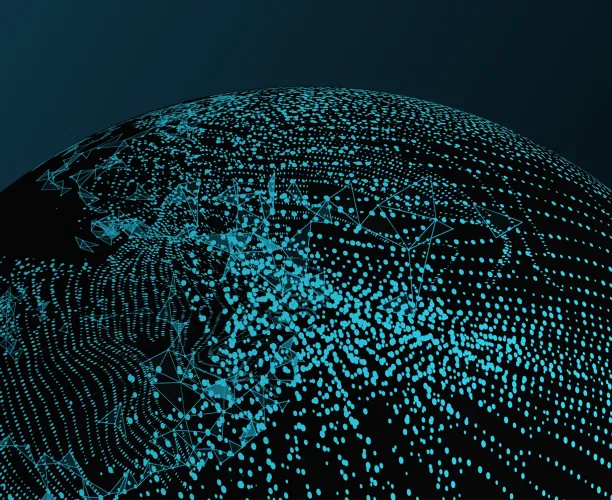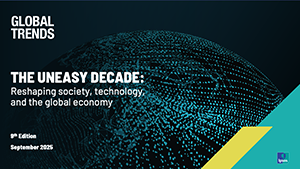

Global Optimism Declines According to Ipsos Global Trends 9th Edition
 Global optimism has taken a hit in 2025 with a 7-point drop in citizens around the world feeling optimistic about themselves and about their community. Now just 59% say they are optimistic about themselves and their family and 45% are optimistic about the city or town where they live. This drop in optimism is striking and has broad implications for corporate and policy leaders alike.
Global optimism has taken a hit in 2025 with a 7-point drop in citizens around the world feeling optimistic about themselves and about their community. Now just 59% say they are optimistic about themselves and their family and 45% are optimistic about the city or town where they live. This drop in optimism is striking and has broad implications for corporate and policy leaders alike.
2024 was a turbulent year during which half of the world’s population went to the polls, and eight in ten of those elections saw the incumbent party lose share or lose power. This contributed to an acceleration of key themes identified in last year’s Ipsos Global Trends report called “Splintered societies” and “Globalisation Fractures”. Rising conflict within families and between nations is leading to unease, which manifests in a rise in anti-immigrant sentiment, a rise in support for nationalistic trade policies, and differing opinions from market to market on the benefits of a global economy.
These findings are part of the ninth edition of the Ipsos Global Trends report, the largest and broadest report of its kind. As we reach the midpoint of the decade, the report, “The Uneasy Decade: reshaping society, technology, and the global economy” focuses on the changes from last year as well as from the initial report in 2013. Ipsos Global Trends is the result of an expansive global survey, fielded this year in 43 global markets, as well as macro force analysis and signals collection. It builds on the framework of nine trends established in 2024 using a factor analysis of more than 5 million data points.
“As trend experts, we’ve been tracking shifts in the global landscape for decades—and it certainly seems that the 2020s are shaping up to be defined by persistent tensions,” says Jennifer Bender, global head of trends and foresight for Ipsos. “This year’s report reflects a sharp increase in geopolitical conflict, the rapid mainstreaming of AI, and a broad societal reconfiguration.”
Other key findings from the report highlight the growing shifts in our personal, political, and even our consumer views:
Our attitudes toward tech are shifting
We remain divided on thinking tech is going to destroy our lives (56%), but in agreement that we worry too much about privacy and that AI has a positive impact increased.
The gender binary is taking hold
Sixty-one percent of global citizens now say that there are only two genders, up from 53% in the eighth edition, as trans-related topics are used as a wedge issue in many markets.
Most people would like to see less immigration
Two in three (65%) citizens in the markets we surveyed now feel that "there are too many immigrants in my country " (up 4ppts from last year).
People align their spending with their personal values
One of the biggest shifts since 2013 is that a majority (52%, up from 39%) now say they are “willing to spend extra for a brand with an image that appeals to me.”
Of course, within the 43 markets surveyed there are not only Global Trends, but sub trends within and between the markets. Personal optimism, for instance, is much stronger in Indonesia and Peru than in South Korea or Japan. Large regional differences can also be seen in attitudes around emerging technology like artificial intelligence.
The full report can be accessed below, and the full 9th edition and historical data sets are available for purchase.




